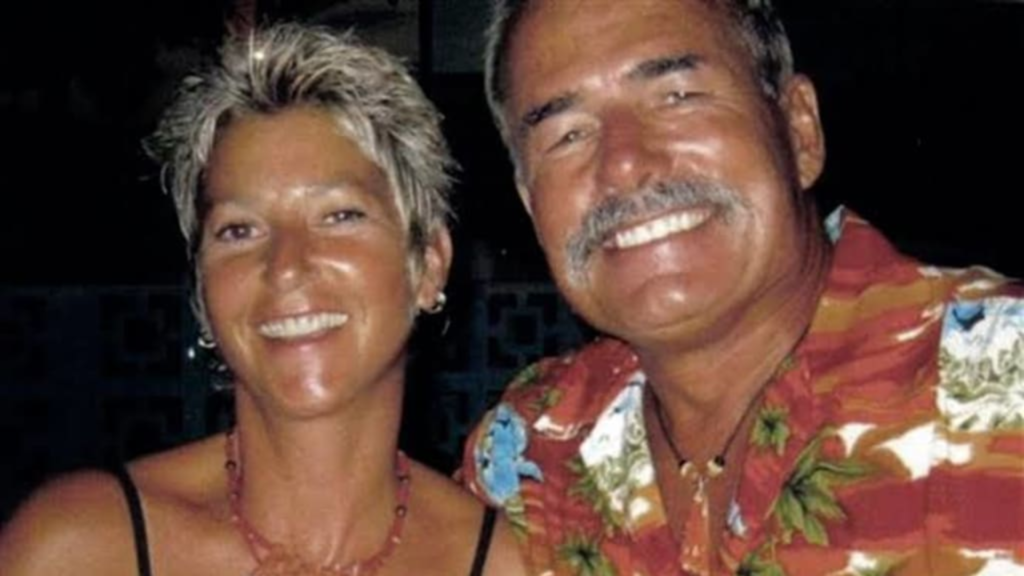
In 2009, sitting on death row, transgender John Jacobson Jr., notoriously dubbed the “Yacht Killer,” openly discussed his brutal 2004 murders of Thomas and Jackie Hawks, a married couple whose deaths helped fund his dream of undergoing gender-transition surgery.
Five years earlier, Jacobson lured the Hawkses onto their yacht off the California coast under the pretense of purchasing the vessel.
Once on board, Jacobson attacked them with a stun gun, tied them to the boat’s anchor, and threw them overboard. After ensuring the couple was gone, he casually grabbed a beer from the fridge and began fishing on the yacht.
“I knew 100 percent that I wanted the surgery,” Jacobson told ABC News at the time, speaking from death row. Last year, that goal was realized when California taxpayers funded Jacobson’s gender reassignment surgery, which was made possible by policies and precedents established during Kamala Harris’s tenure as California’s Attorney General.
In April 2023, Jacobson, now going by Skylar Deleon, underwent gender-affirming surgery and breast augmentation, a fact confirmed in a letter to the Washington Free Beacon.
Deleon also mentioned awaiting transfer to a women’s prison. “I did receive gender-affirming surgery… I am being housed in the hospital for my safety, but I should transfer fairly quickly,” Deleon wrote, referring to a pending move from San Quentin to a women’s facility.
The policy that made this transition possible dates back to Harris’s tenure as California’s top prosecutor, when she facilitated a groundbreaking shift in the state’s approach to transgender inmates.
This issue emerged during Harris’s 2019 presidential run, when a CNN report revealed her pledge to support taxpayer-funded gender surgeries for prisoners and undocumented immigrants under federal custody.
Her advocacy for trans inmates predates this, however, going back to her 2015 role as California Attorney General—a position Harris has frequently cited on the campaign trail as proof of her criminal justice reform efforts.
California was already providing hormone treatments to inmates experiencing gender dysphoria before Harris became Attorney General. Jacobson started hormone therapy in 2009 upon arriving at San Quentin. However, the state’s stance toward transgender inmates evolved dramatically under Harris’s oversight.
In 2015, an inmate named Jeffrey Bryan Norsworthy sued California’s prison system to compel the state to fund sex-change surgery, a legal case that would define the state’s future policy. Initially, Harris’s office fought against Norsworthy’s request, arguing that the surgery wasn’t medically necessary.
A federal judge ruled otherwise, ordering California to pay for the procedure. Harris’s office planned to appeal, but the appeal never materialized. Instead, then-Governor Jerry Brown paroled Norsworthy before the state had to cover the surgery.
Shortly after, another inmate, Rodney Quine, also serving a life sentence for murder, filed a similar lawsuit. Rather than challenge Quine’s case, Harris negotiated a settlement that included payment for Quine’s sex-change surgery, plus hundreds of thousands of dollars in attorneys’ fees.
This settlement marked a turning point for California’s correctional system, making it the first state to adopt a policy of providing sex reassignment surgeries for certain inmates.
In the years following the Norsworthy and Quine cases, Harris publicly expressed regret over her office’s initial opposition to the surgeries, taking “full responsibility” for the legal briefs that were filed.
By 2019, she had fully embraced a more progressive stance. In an interview with the National Center for Transgender Equality, Harris said, “I made sure they changed the policy… so that every transgender inmate in the prison system would have access to the medical care they desired and needed.”
Harris’s views on the issue have been consistent. In a 2019 ACLU questionnaire, she promised that as president, she would use her executive authority to ensure access to comprehensive gender-transition treatment for transgender and non-binary individuals, including those in prisons and immigration detention.
While her policies have garnered support from some, the gruesome nature of Jacobson’s crimes—particularly the murder of the Hawkses—continues to stir controversy. The couple’s deaths became a tabloid sensation, partially because of Jacobson’s earlier role as an extra on the TV show Mighty Morphin Power Rangers.
On the fateful day of the murders, the Hawkses boarded their 55-foot yacht with Jacobson, unaware that he intended to kill them. Once the boat was out at sea, Jacobson used a stun gun to subdue the couple, forced them to sign over their financial information, and then tied them to the yacht’s anchor. After throwing them overboard, Jacobson and his accomplices casually fished and drank beer.
Jacobson was convicted of not only the Hawks murders but also the killing of a former cellmate in Mexico, which netted him $50,000. In total, Jacobson was convicted of three murders in 2008.
Jacobson’s victim, Jackie Hawks, still has family members grappling with the aftermath of the case, including the decision to provide him with taxpayer-funded gender surgery. Jackie’s mother, Gayle O’Neill, expressed disbelief. “I don’t know what right [Harris] had to decide that he gets surgeries now. They killed people, right? Took people’s lives. He killed my daughter and son-in-law, and now he gets what he wants,” O’Neill said.
California’s prison system has seen a sharp rise in the number of transgender inmates. In 2022, 1,617 prisoners in the state identified as transgender or nonbinary, a 234 percent increase from 2017. The state’s backlog for sex-change surgeries has also grown, with projections estimating that 462 inmates would request such procedures in 2024, despite the system only being able to process a fraction of these requests weekly.
Reflecting on how things have changed, O’Neill, once a registered Democrat, stated, “I was a registered Democrat, but I’ve changed since then. I think the Democrats have just gone berserk, all of them. Harris is just too lenient.”
The growing tension between victims’ families, policy advocates, and state officials continues to frame the debate surrounding how justice is balanced with the rights of inmates in cases like Deleon’s.

